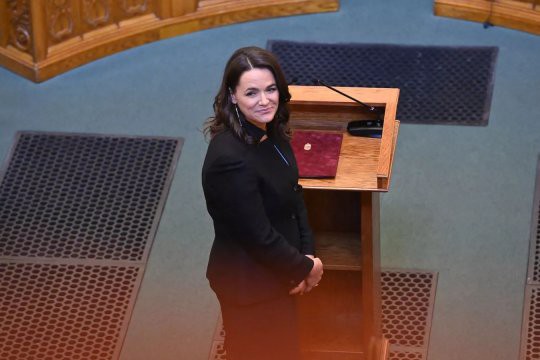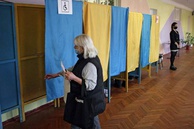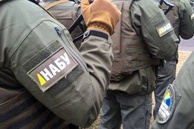The recent visit by Hungarian President Katalin Novak to Transcarpathia Region in Ukraine for a meeting with Hungarian irredenta and for subsequent participation in the Crimea Platform summit in Kyiv seem, at first glance, ideologically incongruent actions (1).
In Transcarpathia, Novak called on Hungarian compatriots to demonstrate unity saying that she had brought them “the power of 15 million Hungarians”. She underscored the importance of Hungarian-Ukrainian cooperation emphasizing that Hungarians and Ukrainians are in for a shared future.
In Kyiv, Novak held a meeting with President Vladimir Zelensky following which the two parties announced Budapest’s participation in the peace formula proposed by the Ukrainian president and the establishment of a diplomatic channel for a direct link between the heads of the two countries (2). Novak spoke words of condemnation of the Russian policy towards Ukraine and assured the other party that Kyiv would emerge the winner and regain control of Crimea. This is at odds with the pragmatic and moderate stance of Prime Minister Viktor Orban on the issues in question and raises questions about Hungarian foreign policy coordination.
Hungary has been consistently urging Ukraine to extend the rights of Transcarpathian minority up to the formation of an administrative Hungarian district with an autonomous status. Budapest argues that in some areas of the region ethnic Hungarians make up the majority and that many speak Hungarian there.
Novak’s words about the return of Crimea seem at odds with Budapest’s policy on Transcarpathia. In reality, the differences here are quite understandable. In all likelihood, Budapest, foreseeing the advent of hard times for Ukrainian statehood, is planning to step up efforts to push the idea that the lands Hungary lost under the Treaty of Trianon and in 1944 were annexed illegally and should return home, that is, become part of Hungary.
Even though this is not stated in public, it is quite visible thanks to Budapest’s moves to establish tight economic, cultural and ideological patronage of the lands by transforming the Hungarian-populated areas into a trans-border entity, tightknit by shared concepts. It seems that Novak’s words about Crimea makes it possible for Hungary to communicate what it can’t say out loud yet.
Budapest hopes to settle the Transcarpathia issue, despite its controversial nature, in tandem with Kyiv. Such an approach stems from the uncertainty of the decision-taking format, which will take shape later, when the situation becomes different from the present-day one.
How the conditions will change is unclear. What approach will Kyiv opt for is unclear either. It is possible to say that Budapest is half-step closer to the solution of the Transcarpathia issue but is standing at the crossroads, waiting for signs which would tell it which road to take.
Should Kyiv maintain sufficient control of the region to keep it within Ukraine, Budapest will continue to communicate with Transcarpathian Hungarians on trans-border basis, as before. If the Ukrainian statehood foundation becomes shaky under the burden of military and economic failures, then, there will emerge a hypothetical chance for Transcarpathia “to retreat into Hungary”.
Having established a direct communication channel with the president of Ukraine, Hungary will get an opportunity to keep abreast with the developments and react in due time.
Fully aware of the game, Kyiv is looking for gains. Fedor Shandor, a native of Transcarpathia (and judging by the last name, an ethnic Hungarian), has been appointed Ukrainian Ambassador to Hungary. Shandor aims to drag Hungary into the Russian-Ukrainian conflict, and he has already acted to this effect, saying that 400 Transcarpathian Hungarians are fighting on the side of the Ukrainian Armed Forces, thirty of them have been killed. In Shandor’s words, this means that Hungary is short of participating in the conflict on the side of Ukraine.
Given that Zelensky is in need of any foreign policy support, Novak has pledged him this. What the support will look like depends on many, yet-to be shaped occurrences. Hypothetically, the questions to the future are the following: will Kyiv be prepared to concede part of its sovereignty for foreign assistance? How determined Budapest will be to secure the return of Transcarpathian Hungarians to Hungary? What will be the economic implications of the events? The answers are hard to predict at the moment.
As Budapest is selecting means to achieve its aim, the priority for now is to enshrine Hungarian presence in the Carpathian basin (which spreads to the territory of Ukraine, Slovakia, Rumania, Serbia) and promote Hungary as regional leader. Carpathian basin is seen as “the place of residence” of the Hungarian people, while Hungarian influence in the region is believed to have been guaranteed by history. Without Carpathian basin, the history of the Hungarians would be incomplete and clipped.
Since the Transcarpathian Region of Ukraine is located in the Carpathian basin, it is the target of Budapest’s foreign policy efforts to strengthen its cultural and political influence. Novak’s visit to Ukraine has become a clear demonstration of this. But the hidden controversy of these efforts will inevitably trigger a conflict in the future.
- https://www.ng.ru/cis/2023-08-22/5_8806_ukraine.html
- https://hungarytoday.hu/president-novak-holds-one-on-one-meeting-with-volodymyr-zelensky/
read more in our Telegram-channel https://t.me/The_International_Affairs

 11:54 30.08.2023 •
11:54 30.08.2023 •



























